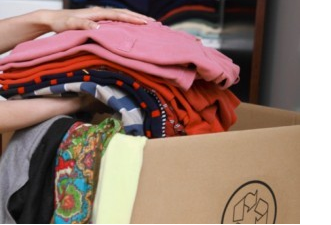Making Your Donations Count at Tax Time

03 Mar 2015
 Getting into the habit of making donations of your gently used clothing and household goods is a great way to keep your space clutter free! But beyond keeping your space in check, making donations has other benefits, including keeping usable items out of landfills, providing items to organizations who can do some good with them, and of course getting items to those in need. But did you know that your donations can also benefit you at tax time? That’s right – generally speaking, you can claim a tax deduction for donating clothing and household items that are in good (or better) condition.
Getting into the habit of making donations of your gently used clothing and household goods is a great way to keep your space clutter free! But beyond keeping your space in check, making donations has other benefits, including keeping usable items out of landfills, providing items to organizations who can do some good with them, and of course getting items to those in need. But did you know that your donations can also benefit you at tax time? That’s right – generally speaking, you can claim a tax deduction for donating clothing and household items that are in good (or better) condition.
Staying organized as you donate items throughout the year will help you be able take advantage of this benefit come tax time. Most charitable organizations that accept donations of clothing and goods will provide you with a receipt for your donations. This has the information of the organization and an authorized signature, but it is up to you – the donor – to make an itemized list of your donations and to assign a fair market value to the items. This is not what you paid for the items and is often less than what you think (or hope) they may be worth. Rather, it is the amount that a buyer would pay to a seller for that item now. To make the process of valuing your donated items easier, several of the major charitable organizations that accept donated goods offer valuation guides that list general categories of items and a range of their typical value. Check out Goodwill’s Valuation Guide here.
So what do you need to do to make your donations count come tax time? Collect a receipt for each donation you make. Before you forget, make an itemized list of what you donated and the donation date. For large donations, you can group like items together, such as children’s clothing, and note the number of items for each category. Then use a valuation guide, such as Goodwill’s, to assign a value to your items and a total for each receipt. Keep these donation receipts together in a tax folder. Come tax time, you’ll have them all together to provide to your tax preparer or help you add up your deduction if you’re doing your taxes yourself. Your receipts or scans of them should then be saved along with your other tax documents as backup for your deduction.
So if you’re already a regular donator, keep up the good work – just make sure your donations are working for you at tax time too! And if you’re new to donating, try it out – the benefits are well worth the effort.
Organizing U has the Professional Organizer Training you need to succeed at every stage! Developed by 15-year veteran and Certified Professional Organizer® Sarah Buckwalter, Organizing U offers on-demand Training and Education Programs, comprehensive Business Forms and personalized Business Coaching to help you start, run and grow a successful organizing business.
